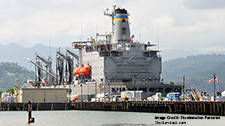Politicking and the Philippine Peace Process
Zachary Abuza
Three months after a deadly clash in Mamasapano, the Philippine peace process is in danger. The hard-won gains of negotiations over the proposed Bangsamoro Basic Law (BBL)—the implementing piece of legislation to the 2014 peace deal between the Moro Islamic Liberation Front and the Philippine Government—are threatening to unravel as candidates jockey for political advantage ahead of the 2016 presidential election. With the prospect of key provisions of the BBL for Muslim Mindanao being watered down and even scrapped, Manila is thereby strengthening the hand of spoilers such as the Bangsamoro Islamic Freedom Fighters, which quit the peace process in 2008. Confidence in a political solution is ebbing with the prospect of continued hostilities and humanitarian consequences, warns Zachary Abuza.
Related Publications
-
EU-Thailand FTA Negotiations: IUU Fishing and Human Rights Remain Obstacles
Thailand’s fishing industry, which at its height saw as many as 200,000 migrant workers from neighboring Laos, Myanmar, and Cambodia caught in a brutal system of abuse, withered global criticism […]
-
Needed, a Framework to Protect Undersea Cables
In the data-driven world we live in, submarine cables are the arteries that connect nation-states and their people in literally every human activity, including trade, commerce, entertainment, and social interactions. […]
-
India-Japan-Philippines: A Strategic Maritime Trilateral or More?
Regional states like India, Japan, and the Philippines have been seeking cooperative solutions with other middle powers that can both counter the Chinese influence and fulfill other economic as well […]
-
ISDP Annual Report 2023
ISDP’s Annual Report for the year 2023. We look back on 2023, a year in which tensions and conflicts captured the strategic space in ISDP’s focus areas, making headlines around […]
-
Continuity and Change in Indonesia’s Past, Present, and Future Foreign Policy Agenda: An Interview with DR. TUFAN KUTAY BORAN
Ahead of the upcoming Indonesian presidential elections on February 14, 2024, ISDP’s Asia Program intern Nolwenn Gueguen sat down with Dr. Tufan Kutay Boran, Lecturer at the Department of Social […]




